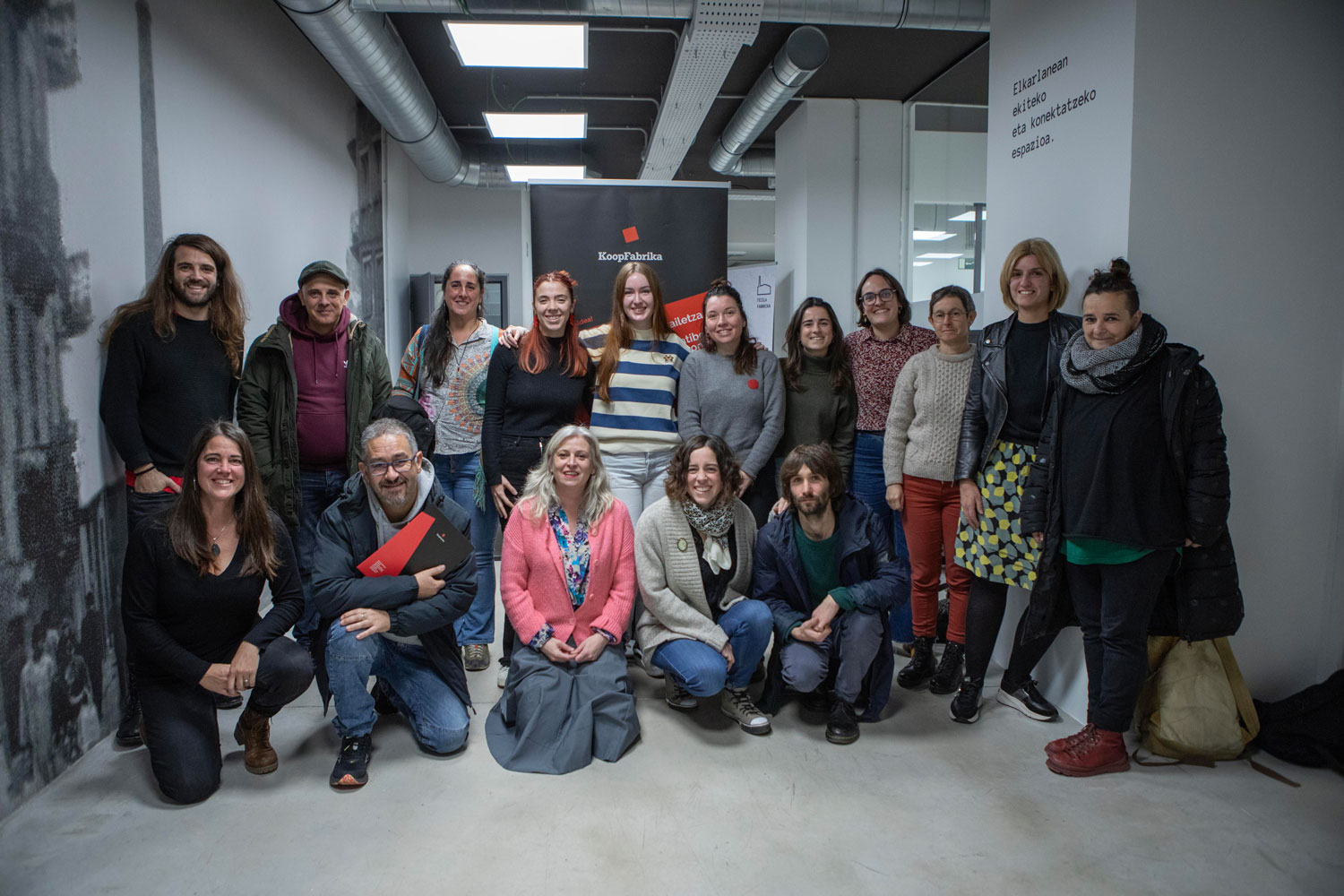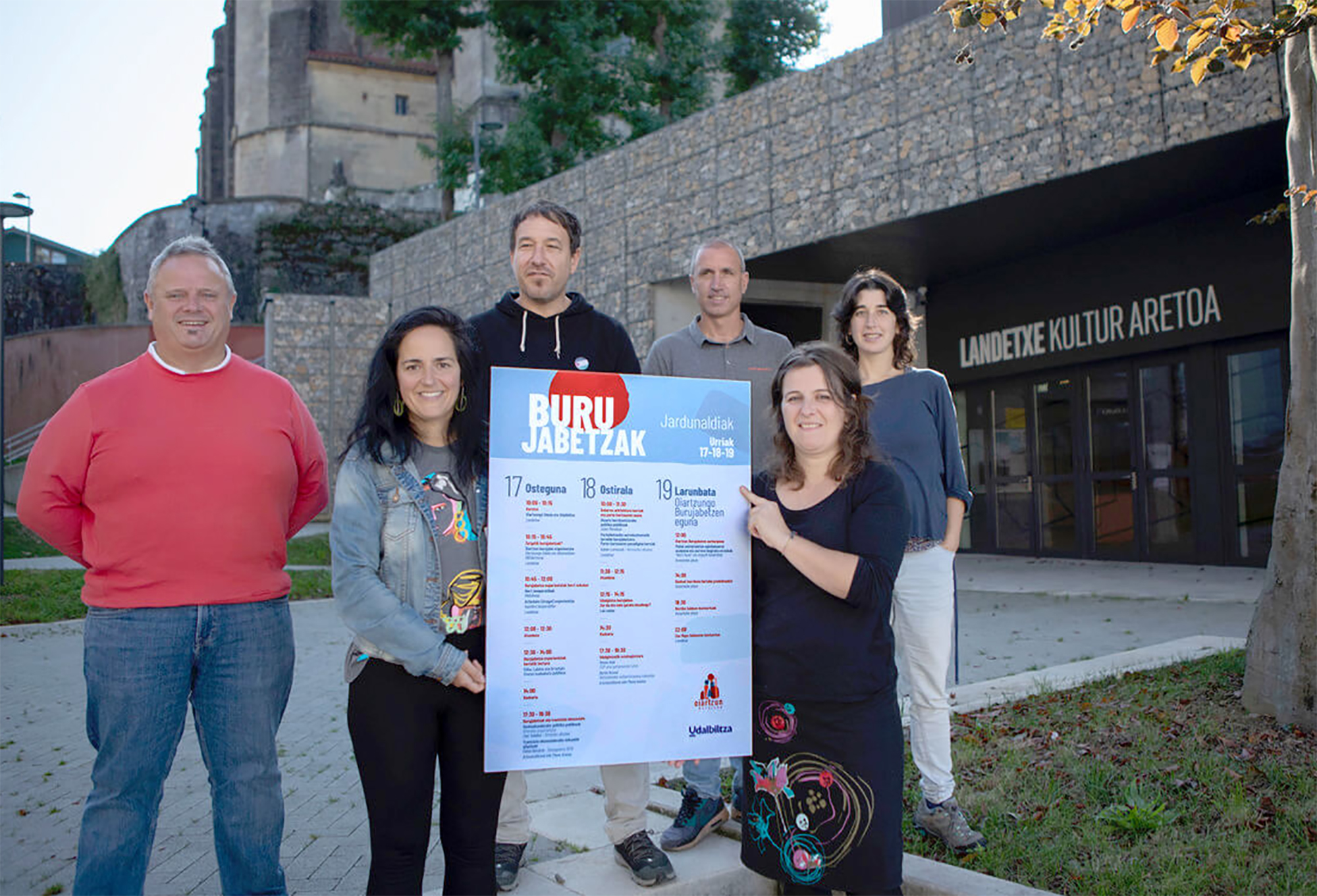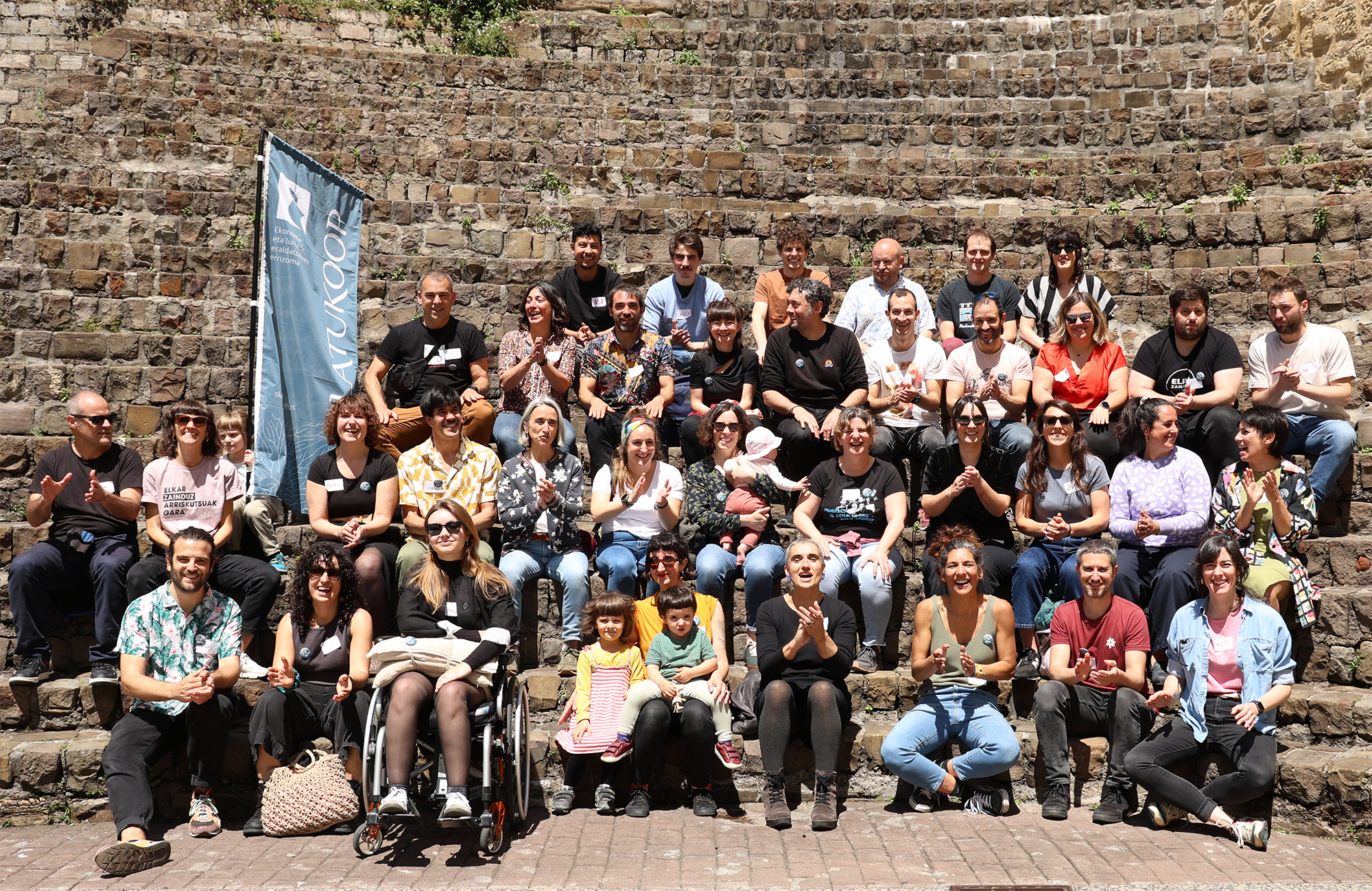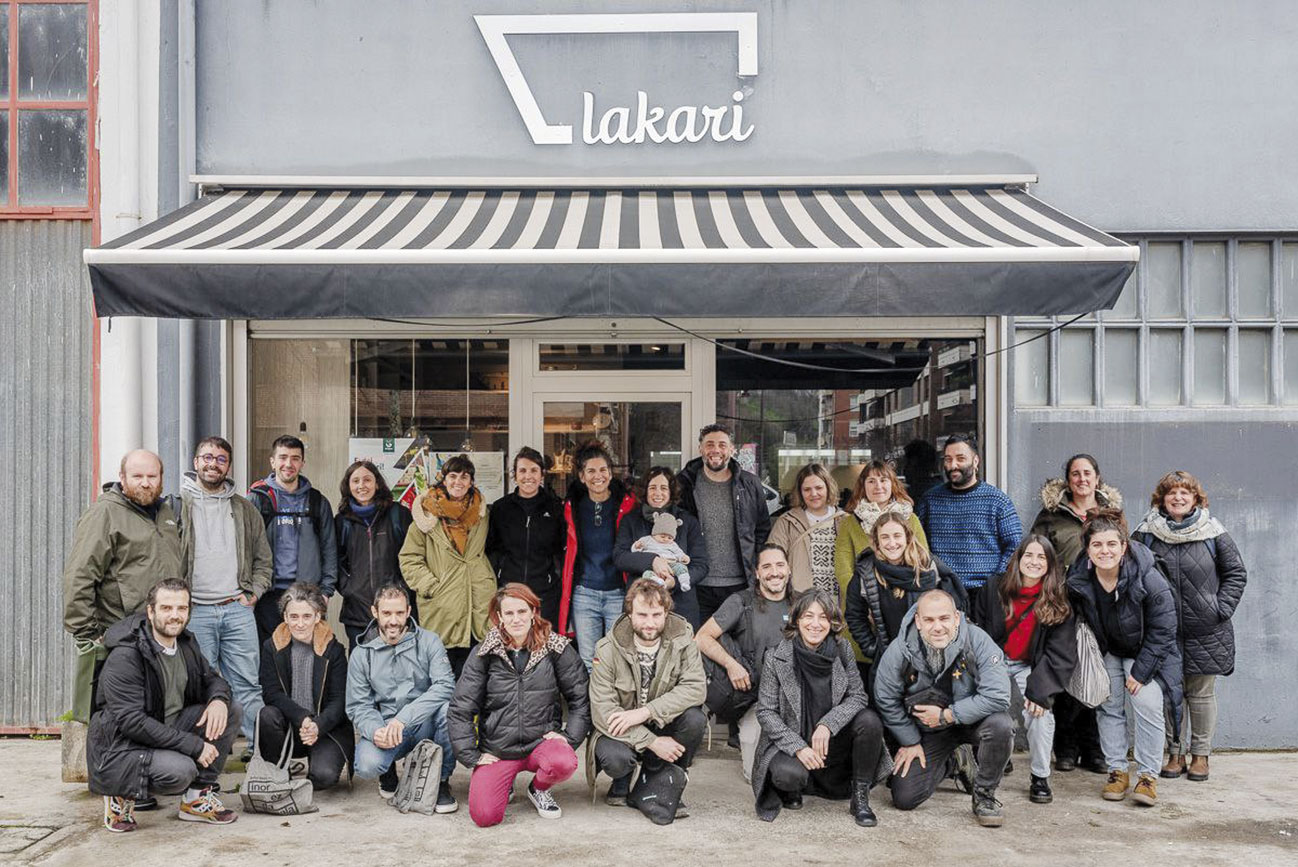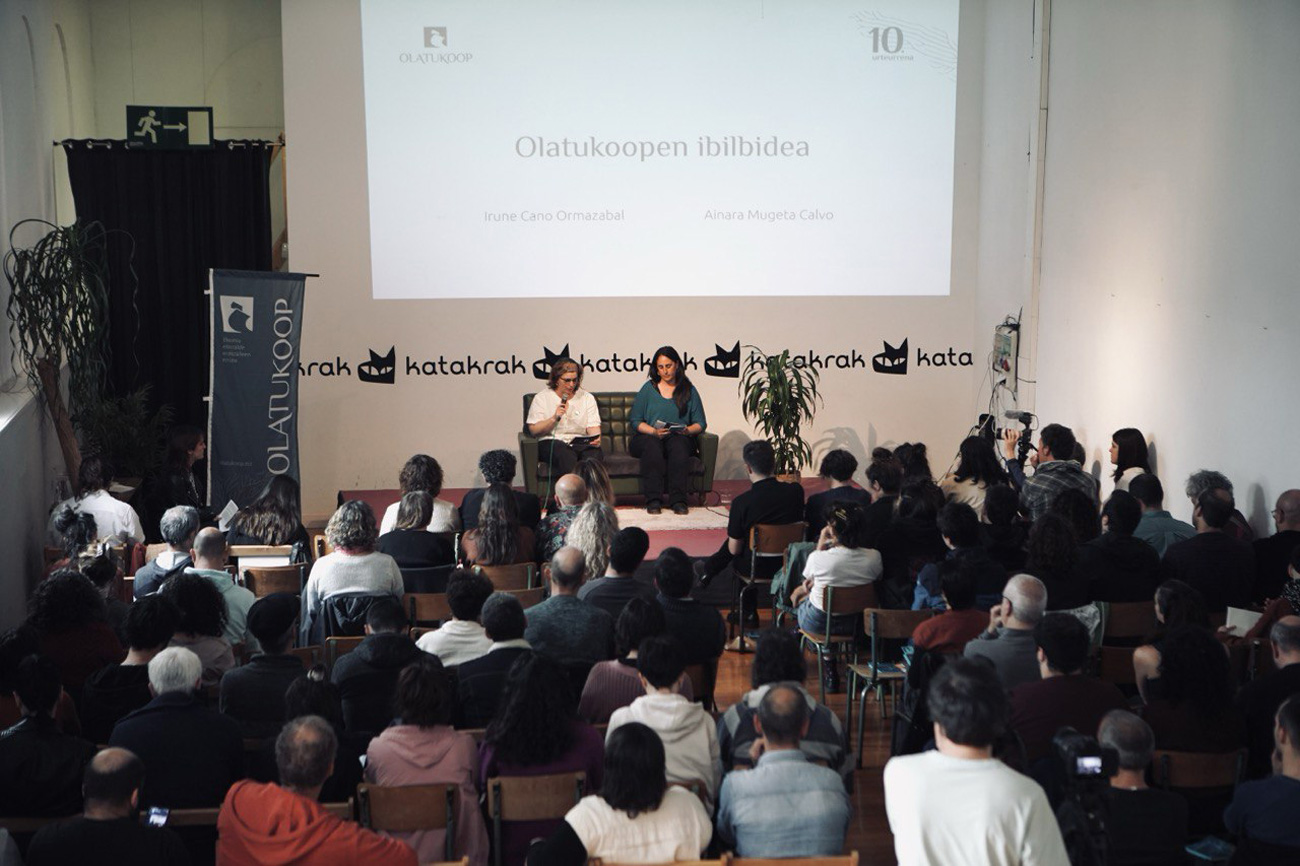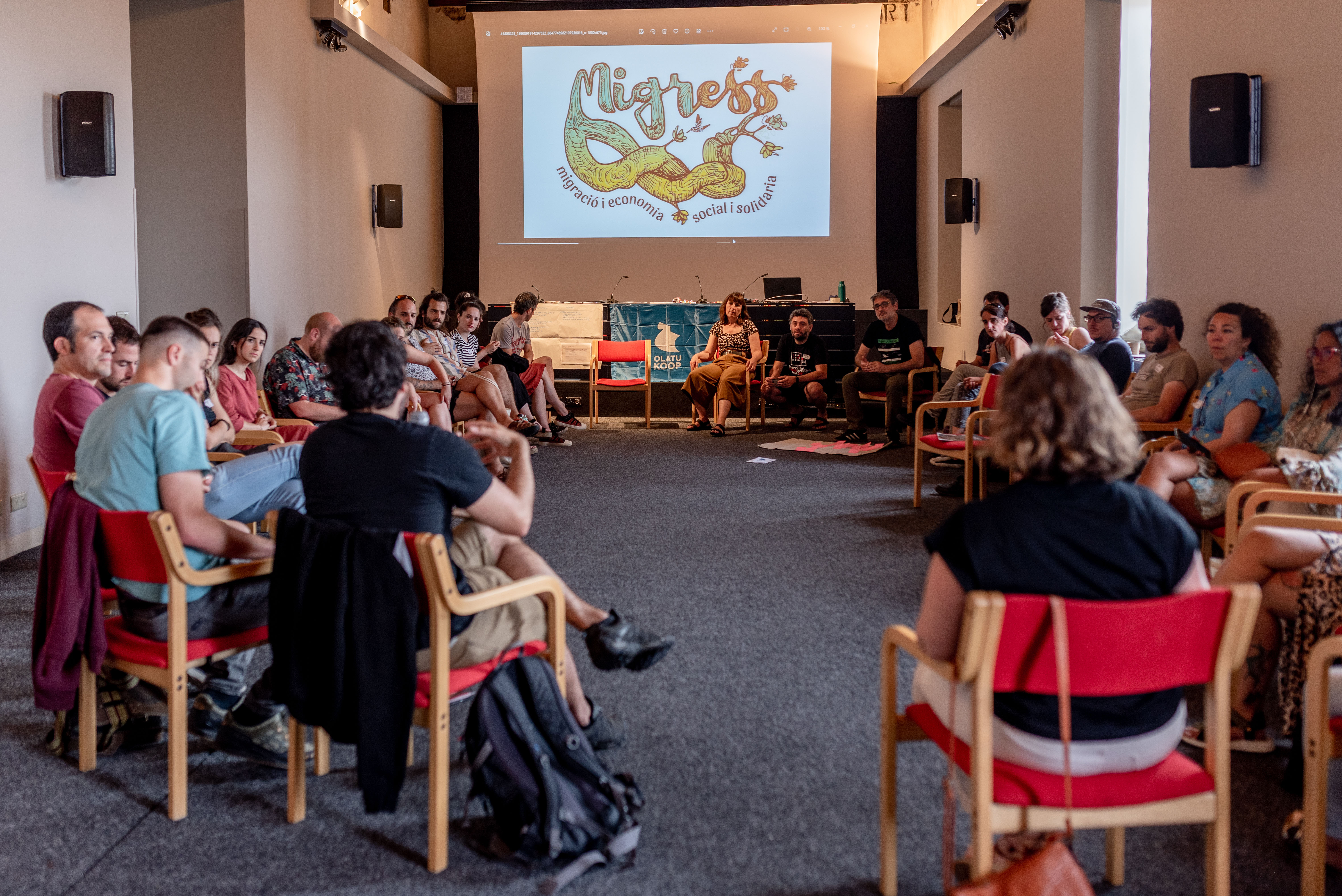Pioneering steps towards energy sovereignty
- The achievement of new energy models requires small local projects, increasingly numerous in the Basque Country. On this occasion, the City of Isaba has taken an important step: it has created the municipal retailer, obtaining the production, transport and marketing of energy. Many want to learn from that model.

“92% of the primary energy consumed today in the Basque Country comes from abroad and comes from fossil fuels or nuclear energy; the situation is regrettable.” The words are from Jesús Ezkurra, a member of Energia Gara, who has appeared before the media. He specialises in renewable energy and warns of the damage caused by the current energy model: “Our society is based on oil and gas, which generate enormous wars and inequalities in our society. In addition, they cause major environmental damage.”
Ezkurra therefore considers that the energy transition is necessary and believes that local projects are needed. “Change has to start from the bottom, from towns and cities, as municipalities are the closest institution to citizenship.” Underlines its responsibility: “They manage resources and have the ability to consider energy as a right and not as a commodity.”
However, it is clear that the energy transition is already underway: there are many who in Euskal Herria have taken the key to their resources in hand and have begun to make their way to sovereignty. There are different models, such as cooperatives, town hall projects and community projects. Examples include Lizarraga, Araia, Isaba, Puente la Reina, Lakabe, Pamplona, the energy island being formed in the free neighborhood of Errekaleor... Its aim is to influence young people in order to achieve global solutions.
As far as the municipalities are concerned, they have three options depending on their resources: producing, transporting or marketing energy. These are the three pillars that make up the electricity sector. There are not a few municipalities that have achieved one of them, but in Isaba (Navarra) they have just taken a pioneering step: the city council has managed to involve these three agents. They've created the first municipal energy retailer in Hego Euskal Herria.

Isaba is a town of 429 inhabitants of the Roncal Valley. The hydroelectric power plant, operating since the 1960s, takes advantage of the flow of the Belabarze and Belagua rivers to generate energy. This plant, which has been managed by the City Hall itself since its inception, is capable of producing two million kilowatts a year. The power plant functions as a function of the flow of the river. It normally produces energy between October and June, and in the next four months they perform other tasks: cleaning, maintenance, works... This year, however, has rained a great deal and there have been historical productions.
On the other hand, the installation of the local electric line long ago makes the City Hall own its network of cables and distributes the energy it generates. Municipalities in very few municipalities have the possibility of generating and transporting energy, most of which depend on large electricity companies. On this occasion, they have taken the last step in Isaba: they have started selling energy. “Three years ago we created a municipal group to work on the energy model and we saw that it was not difficult for us to fulfill that third factor: selling energy,” explains Aitor Pérez, a member of the municipal energy group.
He has acknowledged that the process has been very long, as a great deal has had to be done to resolve it. However, they have succeeded: since 1 July the municipal energy retailer Rio Ezka has been charging the electricity of 280 customers. Now anyone can hire the service, either by phone or on the Internet. The aim is first to reach the inhabitants of Isaba, but they intend to extend to other places of the Pyrenees, as they have the capacity to reach the entire Iberian Peninsula. However, according to Pérez, the uptake of new customers is not being easy, as it is very difficult for people to make such changes.
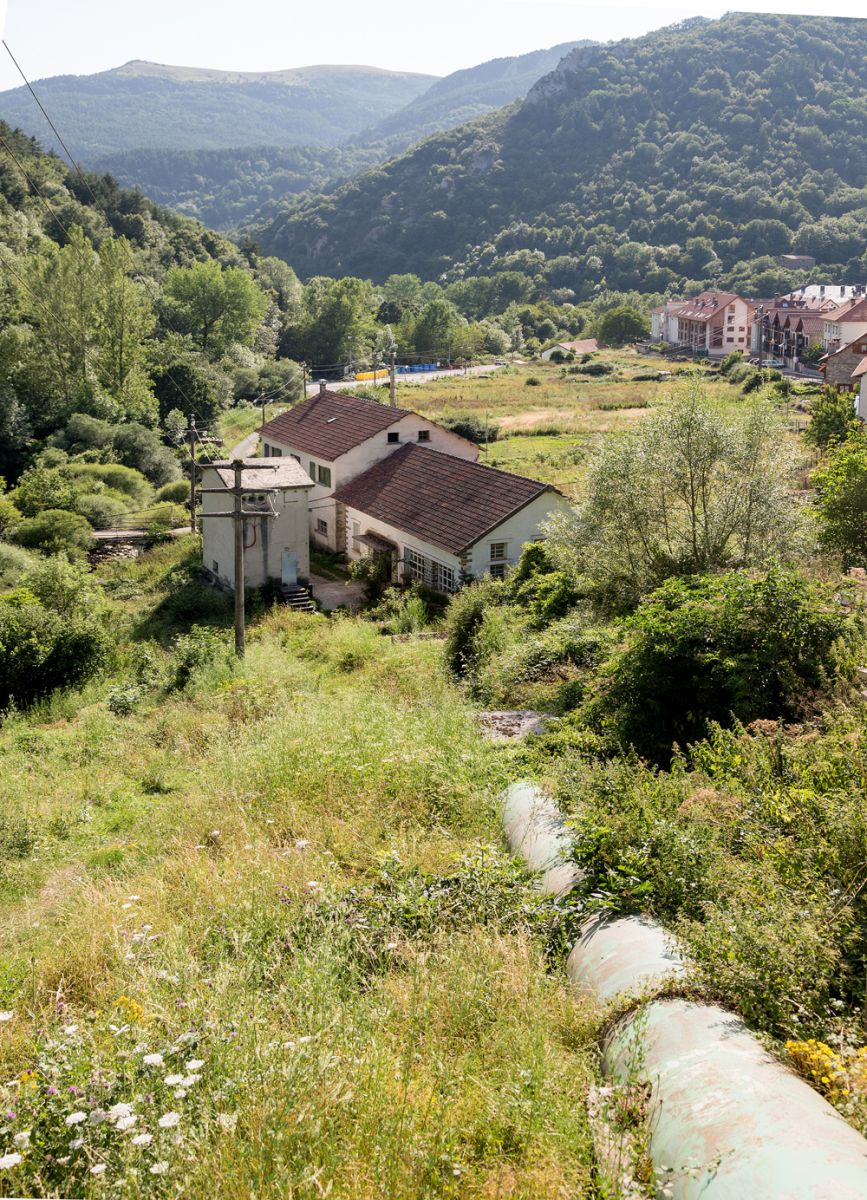
As for the price, before you started selling the energy, you didn't know how the price was going to be, and you didn't want to emphasize that difference. But then they realized that the service they offer is a little cheaper than that of private companies. In addition, the City of Isaba undertakes to invest the benefits of the hydroelectric power plant in the projects generated in the Pyrenees to give a boost to the region.
Pérez explained that with the step "the circle has been completed": “We have managed to get the whole process in our hands to take advantage of the resources provided by the Pyrenees.” To this end, he stressed that "precariousness" in production and distribution has been key factors in achieving this challenge and doing everything on a small scale. They are satisfied with the result: “We don’t see him wrong.”
At first, when they started creating the marketer, they thought they were not going to do anything new. For this reason, they are now “surprised”: “They have come to us from other places for advice”. Citizenship is also satisfied with the service: “It’s an unbeatable tool to drive the development of our people independently,” said Patricia Alberdi, a neighbor of Ezker Isaba.
As soon as she heard the news, she decided to hire the service, both for her home and for the accommodation her husband occupied. Although he initially did not know what the price would be, he did not hesitate, as he considered that the project was worth making an effort. The decision was made for a number of reasons. On the one hand, you mentioned closeness: “It’s OK to know where your money is going and to have full confidence in the company.” On the other hand, he stressed the importance of economic aid for a people as small as Isaba, which has few resources. For the time being, he added that the service works well.
The aim is also to achieve self-sufficiency.
In Navarre there are more examples similar to those of Isaba, one of them is the Gares Energía project. In Puente la Reina (Navarra) the municipal development group was also created in 2014, and after analyzing its possibilities with the resources of the town, they decided to use the minihydro power plant. The Electra-regadio power plant supplied the population with energy between 1918 and 1983. At that time, with the electricity produced by the power plant, they supplied the people and destined the surpluses for the industry.
The plant was closed by the privatization wave of the 1980s, and has since remained in a state of standstill in Sopela. Now, they have started to recover it, because they believe it is a good tool to boost energy and social change in the city. The plant was set up in two previous attempts, but on this occasion they want to go further, as Mayor Oihan Mendo explained: “In previous projects they had only a perspective of selling energy. We, on the contrary, want to produce renewable energy, but we also want this energy to be public, close and self-consumption.”

The use of the waters of the Arga River will be made taking into account the farmers of Puente la Reina. As they need a lot of water, the plant’s project will be completed with photovoltaic plates. They will be installed on the roof of the village fronton and the photovoltaic energy generated will be used in summer, when farmers need more water. In this way, production will be continuous. The project, which encompasses both initiatives, has been dubbed Energy. The energy they obtain will be used for public buildings and lighting in the locality and it is planned to cover 50% of the total energy expenditure of the municipality. “We will continue to look for new ways to achieve total self-sufficiency,” added the mayor.
Aitor Pérez (Isaba municipal energy group): "If with what we have we can offer new opportunities without waiting for external aid, citizenship will have one more reason to stay"
It implies the empowerment of citizens
The expert Jesús Ezkurra has ensured that advancing energy sovereignty means empowering citizens: “Energy projects must be harnessed for social benefits; advancing the sovereignty of society.” In the case of Isaba, they believe that the step they have taken can be beneficial in dealing with the problems of the region. It is a good thing that citizens are made aware of the value of local resources in the face of depopulation. Pérez: “Without waiting for external aid, if we can offer new opportunities with what we have, citizenship will have one more reason to stay.”
In Puente la Reina, the social part is also being monitored; taking as an excuse the energy project, some areas of the town that are deteriorated will be fixed: the roof of the fronton, the promenade of the river... Some of these works will also be carried out in an auzolan way to work with the idea of collectivity. “In this way, people will be able to see that energy is a resource and a first level need, and that it is within collective property,” Mendo said.
In addition, this type of project creates jobs in the villages. In Puente la Reina, for example, they will need personnel for the recovery works of the plant and plate placement, and to hire them they will use the work bag they have in the village. In Isaba, however, only one job will be created that will be responsible for marketing, but Pérez has stressed the importance of decent long-term employment in a small town.
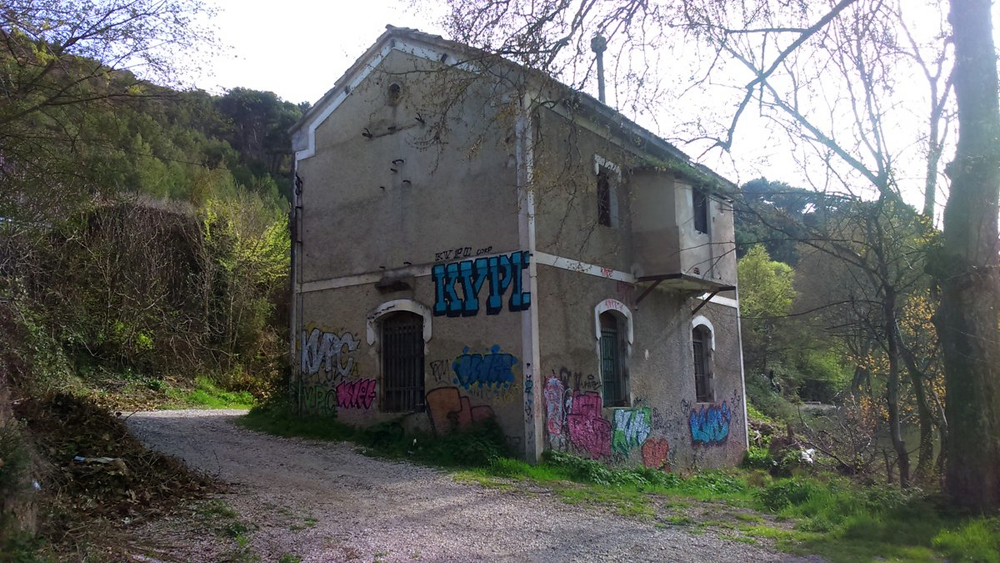
They want to spread what they've done.
In order for the road not to remain there, it is intended to create an energy classroom in both Isaba and Puente la Reina, where children can learn about their local experiences. In addition, they will take advantage of tourism. Both are very touristic municipalities: It is the largest town in the Isaba Roncal valley and in winter many people will ski in Belagua. By Puente la Reina passes the Camino de Santiago and every year thousands of pilgrims visit the town.
They therefore want to take this opportunity to make the information on energy transformation known. The objective is to organize guided tours to the central and energy classroom of both municipalities. “One way is to show people that other models are possible and that when they return to their villages, they push popular movements or administrations to take the same path,” the charismatic said.
Jesús Ezkurra (Gara Energy): "Energy projects must be harnessed for social benefits and progress in the sovereignty of society"
Fears, ignorance and comforts often curb changes. However, in Isaba and Puente la Reina they are clear about this: it is not necessary to be an expert or set unattainable goals. The most important thing is the mind. Pérez: “We didn’t know about this before, but we were eager. We saw that there were opportunities and that we could deal with big electricity.”
Once proven to be possible, they dream of extending change to other places. They have shown themselves willing to show what they have learned and to help others. “We have made a drop, but we want this to become a sea.”
Hirietako udalek prozesu konplexuagoak egin behar izaten dituzte energia burujabetzaren aldeko pausuak emateko; baina aukerak egon badaude. Iruñean, adibidez, udalak agintaldi hasieran eskura zituen aukerak aztertu, eta energia merkaturatzailea sortzea erabaki zuen.
Izabakoaren ostean, Hego Euskal Herriko bigarren udal energia merkaturatzailea izango da. Hala ere, prozesua ez da erraza izan. Izan ere, energiaren merkatua esklusiboa eta aldakorra da, eta udalak administrazio egitura egokia bilatu behar izan du orain arte enpresa handiek kudeatu duten lan hori egiteko.

Horretarako, udal energia agentzia bat sortu dute. Pleno bidez onartu zuten hori, laukoaren aldeko botoekin, eta UPNren eta PSNren aurkaritzarekin. Udalak Energia Gara kooperatibarekin batera egindako azterketa batek erakutsi zuen agentzia hori sortzea bideragarria zela. Orain merkaturatzailea sortzeko bidean daude, eta 2019ko urtarrilerako eginda egotea aurreikusten dute.
Behin merkaturatzailea sortuta, elektrizitatearen merkatuan energia berriztagarria erosi eta hori erabili ahal izango dute. Udalaren lehenbiziko helburua izango da erakunde publiko gisa dituen gastuei aurre egitea, elektrizitate saltzailerik kontratatu gabe. Hiriko argiteria eta eraikin publikoak hornituko dituzte.
Bigarren fasean, berriz, pobrezia energetikoa sufritzen duten familiei laguntzea izango dute helburu. Hala ere, energia guztiaren %20 soilik bideratu ahal izango dute arlo pribatura, sektore elektrikoaren legeak hori zehazten baitu. 2020rako gizarte-bazterketa egoeran dauden 3.000 edo 4.000 etxebizitza hornitzea espero dute.
Horrez gain, udalak Energiaren Plangintza aurkeztu zuen urtarrilean, hirian energia burujabetzan eta autonomian oinarritutako eredua ezartzeko helburuarekin. Horretarako, 22 neurri aurkeztu zituzten; horien artean etxebizitzetan instalazio fotovoltaikoak jartzeko inbertsioak handitzea, informazioa zabaltzea eta aurrezpena eta eraginkortasuna bultzatzea, besteak beste.
Gasteizen, aukerak aztertzen
Gasteizko Udalak ere bide beretik jotzea erabaki du. Otsailean ikerketa bat egin zuten, Energia Gara taldearekin batera, baloratzeko ea bideragarria den udal energia merkaturatzailea sortzea. Txostenak ebatzi zuen aukera egokia dela; hala ere, oraindik ez dute erabakirik hartu eta aztertzen ari dira.
Budgets and the closure of annual accounts are nothing more at this time, from the domestic economy to most of the socio-economic spaces that we share. Large companies have begun to extract calculators and implement major plans for 2025. Small and medium-sized institutions and... [+]
One of the major projects developed by Olatukoop with other actors is KoopFabrika, a programme created in 2017 with the aim of boosting social entrepreneurship and which is currently underway.
Initially, the first idea was that the cooperatives and agents that gathered around... [+]












